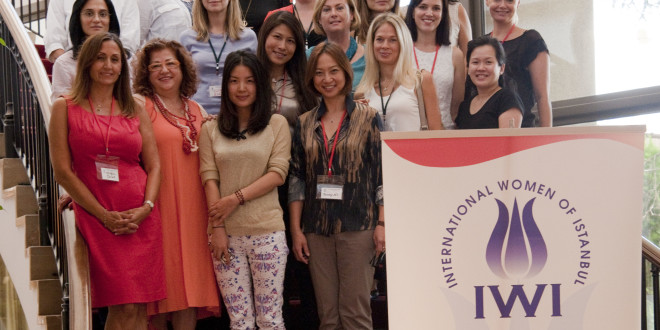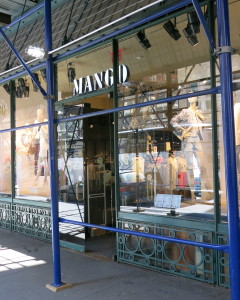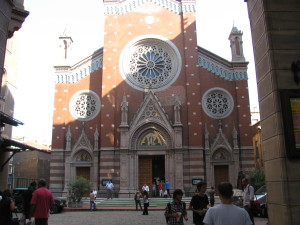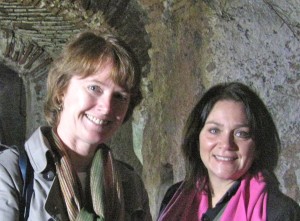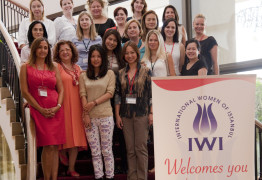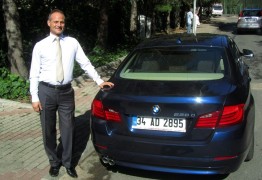Dear readers,
A bunch of you have asked me where I am currently. I’m home in Minneapolis, Minnesota. Through this site I am blogging about the years I lived in Istanbul: 2010 through 2013.
Three months had passed. Ninety days. They had been much like those I’d spent in other foreign countries: an initial flood of challenges combined with periodic waves of loss.
Thanks to the company’s help, we had settled in fairly quickly. So quickly, in fact, that I was beginning to feel complacent. As often happens when somebody else does things for you, I had become dependent on Ümit for transport around the city, and rarely ventured out alone.
One sunny afternoon, I decided to change that. I gathered my courage, walked down to the Bosphorus, and hopped on a city bus to Taksim Square. It would be my first ride alone here. My destination: historic Istiklal Avenue.
A century ago, Istiklal Caddesi had been the main thoroughfare of the city’s glamorous Pera District, an avenue lined with embassies and diplomatic residences. Although only a scattering of consulates remained, embassies having moved to the Republic’s new capital, Ankara, in 1923, the avenue was still cosmopolitan, a pedestrian-only social and shopping venue.
As the bus made its way south along the Sea Road, it passed the hotel, where the company had put us up on our initial visit in January, and I felt a surge of accomplishment. Just eight months ago I’d been a complete stranger here, only daring to venture two blocks from my hotel. Now I was out navigating on my own.
The bus turned away from the sea and ascended a long hill. Soon we were up at Taksim Square in the heart of the city. There, Istiklal Avenue originates, winding a mile to the Tünel funicular, which drops passengers down to the waters of the Golden Horn.
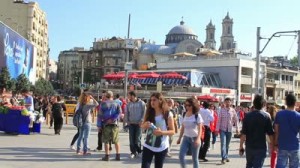
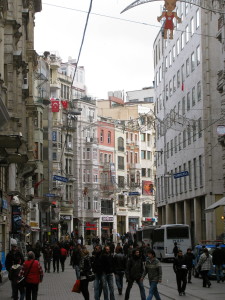
I got off the bus and began to walk. First, I passed the charming, diminutive French Consulate with its art gallery and café. I browsed in Mango’s three-story flagship department store, and walked into an upscale women’s shoe shop called Hotiç, full of slim leather boots, despite the fact that Istanbulus rarely trudged through snow. I peeked into the arched, frescoed Çiçek Pasajı (Flower Passage), full of restaurants; and peered under a decorative arch at the Balık Pazarı (Fish Bazaar). Finally, I gazed through a tall iron fence at the hundred-year-old neo-Gothic St. Anthony of Padua Church.
When I reached the Galata Mevlevihanesi, a museum dedicated to Turkey’s whirling dervishes, I turned and headed back toward Taksim.
After querying several people, “Kabataş otobüs nerede?” I located the bus back to Kabataş, a major hub along the Sea Road. Once there, however, I realized I didn’t know which bus continued on up the Bosphorus to Arnavutköy and home. I didn’t see anyone to ask and it was too far to walk, so I switched to a taxi, vowing this would be the last time. “From now on,” I told myself, “it will be a game to come and go solely by public transport. Giving up and taking a taxi will be considered cheating!”
Exhausted that evening, I stretched out on our trusty green tweed American couch. A bout of homesickness washed over me. Why, I wondered, when my day had been so successful?
I missed American foods, particularly comfort items like cookies, sweet rolls and donuts; baking was the only area in which Turkish cooks didn’t seem to excel. I missed losing myself in movies—the only American movies Turkish theatres showed were blockbusters—and I missed having books at my fingertips. I missed reading a morning newspaper with my coffee. Oh, for the Sunday New York Times! I had taken to printing out the articles I wanted to read each weekend, then heading to the couch with a thick 8 x 11 stack of paper. It was the closest I could approximate to sitting down with actual newsprint.
I missed American television. We got CNN International here, as well as the BBC, and theoretically I could download American programs, but my laptop “knew” I was in Turkey and displayed a stern message about international copyrights every time I tried. To get around this, I had tried consorting with sketchy websites like gorillavid and vidxden, but that only made me worry about viruses.
I missed getting in my own car and zipping around, although I had to admit that riding with Ümit often lifted my spirits. I ended up smiling because I’d had to be pleasant to someone else, and we’d found things to laugh about.
“You have helped me a lot,” Ümit told me just the other day, taking me completely by surprise. It was a few moments before I realized that he was referring to his English capabilities, improved through our daily talks. Apparently my stumbling and bumbling first months here had been at least somewhat productive. Ümit’s words made my day, and I vowed to keep them in mind.
Food items and sources of information aside, what made me most homesick here were people: I missed both friends and family. Quite a few were making plans to visit, but these visits were months—even years—away. I was lonely. That was the real reason for my malaise
Thankfully, now that September was here, with schools in session and foreign families back in town, I could begin to connect with the expatriate network, and hopefully make some new friends. The International Women of Istanbul (IWI)’s opening meeting was scheduled for September 23, just a few days hence. The 23rd was Angela’s birthday; hopefully the meeting would distract me from the fact that she had chosen Minnesota for graduate school in part to be closer to Sankar and me. “You’re not going anywhere, are you?” she had asked us less than a year ago.
An enticing welcome message was now up on the IWI website, proclaiming its “over 600 members representing 56 different countries” and promising an “e-newsletter . . . a monthly program calendar which has a wide range of social activities . . . cultural tours. . . interest group meetings. . .”
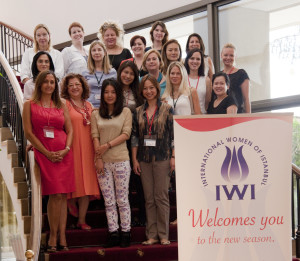
My attitude toward friendships with expatriates was different now than it had been other times I’d lived abroad. In Costa Rica I didn’t think I needed other foreigners. This was partly, “I don’t want to belong to any group that would accept me,” but also a result of my experiences in Yemen. There, I’d had what I felt was an authentic overseas experience, holding a job and spending much of my time with locals. In Costa Rica, I had intended to do the same, socializing mainly with Ticos and absorbing their customs. I figured that would be easy. I already spoke Spanish, and had worked with Latin Americans. I dismissed the idea of getting to know other North American women, believing they would be focused on little other than lunching, shopping, and decorating their homes.
But things hadn’t gone the way I’d expected. First, I hadn’t held a job in Costa Rica, and second, the Latin women I’d met—neighbors, mothers of my kids’ classmates—had seemed decidedly uninterested in friendship. Gradually, their reasons had dawned on me. Not confined to their homes as were the bored, underutilized Yemeni women, Costa Rican women were busy with jobs and extensive family obligations. And their tiny country had long been host to thousands of North American sun-seekers and tax-evaders, taking any thrill out of the arrival of yet another gringo.
When I lamented my lack of Tico friends to a U.S. Embassy wife, she told me that the Embassy advises its employees not to expect friendships with locals. “If it happens, that’s great,” she told me. “But they’re busy with their work and their families. They aren’t looking for new friends, especially ones who are here only temporarily.”
When I finally dropped my quest for authenticity, I met an interesting—and yes, authentic— group of expatriates in Costa Rica. And even in Yemen, although I had spent a great deal of time in local homes, I had to admit I’d depended on other foreigners for evening and weekend socializing.
Expatriate friends were, I now realized, essential. They provided a crucial respite from the stress of navigating a foreign culture. They nodded in sympathy over daily mistakes and misunderstandings without hearing blame, as a spouse might. They provided relief from constant, awkward attempts to communicate in the local language. And “older” expatriates—those with more time in-country—were a valuable source of advice, as they had already learned from their newcomer mistakes.
This time around I was aware that, if I failed to find friends in Turkey—and it was I who typically brought friends into the marriage—neither Sankar nor I would have a social life here. If we didn’t have a social life, we would both be unhappy. Our time in Turkey would be a failure.
The morning of the IWI meeting, I put on black slacks and a new top, and thought about the steps I’d taken toward embracing my current role. I was older and wiser now, and I had less trouble admitting that I was a non-working, trailing spouse. Although I could gripe that I’d been forced into that role when I moved here, I’d actually placed myself on the road to it years ago when I gave up full-time work.
I had accepted my role, and I wanted what today’s meeting promised—but still, I didn’t look forward to attending it. To accomplish this important task, I’d have to socialize with people I didn’t know, and I was far more skilled in riding buses around town anonymously than introducing myself in a room full of strangers.
The problem was that I had never been good at keeping small talk small. Perennially impatient, I wanted to go deeper than surface chitchat and often did, offering commentary that sometimes ended up sounding snarky. I longed for the sly nod of agreement that would shortcut the process and identify a potential friend. But most often, I suspected, my words simply proclaimed me as impolite.
Beggars cannot be choosers, however, and today I planned to be as positive and light-hearted as possible. And thereafter I vowed to try my best to attend a variety of IWI events, even if I feared I’d have little in common with the women attending them.
That approach had actually worked for me when I’d finally tried it in Costa Rica. I had endured a tiresome, all-day cooking class attended mostly by women whose children went to a school across town. They had seemed cliquey, their conversation hard to follow. But there had been one friendly face, belonging to Denise, whose husband worked for the Canadian Embassy. Denise had three daughters whose ages were similar to those of my kids, and a few days after the class, she surprised me with a call and a dinner invitation (this was expatriate performance at its best). Our husbands hit it off, our kids played well together, and fifteen years later, we are still friends with her family. This was how friendships were made overseas: large, trivial events full of shallow conversation winnowed down to satisfying personal friendships.
At 10 am on September 23, Ümit drove me up to Taksim Square and deposited me at the Hilton Hotel, a ten-story, newish concrete building. We agreed that he would pick me up in an hour and a half.
The hotel’s vast lobby gave little clue it was in Istanbul, save a display case containing a quilted Ottoman caftan and some patterned ceramic bowls. A sign pointed IWI members to the lower level and, arranging a smile on my face, I descended a wide, curved staircase. At the bottom, groups of well-dressed women—why hadn’t I put on a scarf or necklace?—massed around several long tables. I had already paid my dues online, so I located my nametag and headed into the meeting.
To my surprise, I found myself not at a sit-down event, but a ballroom filled with numerous individual tables, each staffed by two or three women. All over the room, people were walking around and signing up for activities that interested them. It wasn’t a meeting at all. It was more like an exhibition or a fair.
I stood for a moment, considering the situation. Around me swirled a multitude of women who looked to be from all over the earth. Petite East Asians wearing silky, brightly colored clothing. Women from India, wearing selvar kamizes. Women speaking Spanish—at one table I would talk briefly with a woman from Bolivia. Women whose no-nonsense haircuts and chunky shoes gave them away as northern European. Bescarfed Arab women with large, gold jewelry and thick eyeliner. The room had a floral scent and buzzed with modulated conversation, women talking and laughing, seeming much more at ease than I.
If I had been able to forget myself for a moment, I would have marveled at the sheer quantity of cultural adjustments these women were in the process of making. And I would have seen forced smiles and uncertain glances just like my own, recognizing the same disorientation I myself felt. Instead, I felt alone and conspicuous. But I didn’t give up.
I started around the room. First I stopped at a booth promoting a high-end English-language magazine about Turkey called Cornucopia. Next a booth recruiting volunteers to help with an annual Christmas bazaar. I took a flyer. Then a booth run by Irish nuns asking for volunteers to pay regular visits to a retirement home. A French-speaking booth and a Dutch-speaking booth, recruiting their own nationals for social activities.
The far end of the room was given over to all the different private schools, preschools, daycares and playgroups in town. I was relieved I didn’t need to examine these, didn’t have the task of trying to keep children happy and adjusted and well educated here. But I also felt wistful, as I knew the women at these booths would make friends almost instantly. I was also reminded that at age 55, I might not be a prime friendship candidate, at least not for women younger than me.
I noticed a booth with a sign that read PAWI. This, a volunteer explained, stood for Professional American Women of Istanbul. The group, she said, offered monthly networking meetings with speakers from Turkish and international organizations. I signed up to be a PAWI member and forked over 35 Turkish lira ($20) for annual dues.
Adjoining the PAWI table was a sign for a book group and there I met a pretty, gregarious woman named Felicia. She told me she had come to Istanbul from Washington, D.C. two years ago, when her husband got a teaching job at Robert College, Turkey’s top high school. Felicia was practically a neighbor, as she—and the college—were located just down the Bosphorus from me. I looked at the list of books the group planned to read (The Help, Room, Cutting for Stone), signed up, and Felicia and I exchanged contact information. I was pleased to connect with a familiar activity in this new place.
I headed to the refreshment table in the center of the room, and picked up a cup of tea, reminding myself to keep smiling, as if “the friends I’d come with” had just stepped away. My shoes were beginning to pinch and my face felt stiff. But looking at my watch, I realized I hadn’t even been at the meeting an hour. If I’d had my own car, I might have cut out at this point, but I didn’t, so I stayed, grabbing a crumbly cookie and then struggling to balance it with my cup and saucer and the pieces of literature I’d picked up.
In a corner back near the ballroom’s entrance, a diminutive gray-haired woman stood behind a table that had no visitors at all. A half dozen enlarged photographs were spread out on her table, and I walked over to look at them. I saw an ancient-looking arched bridge, the interior of a mosque that looked as if it was made of wood, and a group of people smiling in front of some Roman columns. I asked the woman about her organization.
“It’s called ARIT,” she told me, speaking in what sounded like a British accent. “American Research Institute in Turkey.” She went on. “We help fund scholars who do research in Turkey, giving them stipends and a place to stay. The money comes from the fees ARIT members pay for guided trips all over Turkey.”
I wasn’t quite certain I understood, but, remembering my vow to be positive, I nodded. Drawn by the possibility of travel around Turkey, I found myself signing up to be an ARIT member and paying the annual dues, 90 Turkish Lira, about $60.00. Back at the apartment I would chide myself for springing for something so expensive that I knew so little about. My forced positivity seemed to have brought out the spendthrift in me.
After stopping at a few more tables, I gave myself permission to leave. I knew I should try to make more connections, but I could only push my temperament so far. For all my awareness of the importance of expatriate friends, I look back and see myself mired in my own inadequacies,and still treating blithely a crucial first meeting of expatriates. What would have happened had I approached ten tables and carried on ten conversations, getting contact information and feigning interest in ten different activities?
But I had tried. I had made a few contacts. It wasn’t a great performance, but it was okay.
On my way out, I picked up a swag bag full of products companies wanted us expatriate ladies to try. There was a boxed mix for the brightly-colored macaron cookies I had seen at upscale bakeries here; a tube of Nivea hand cream; a box of Lipton Iced Tea mix, which seemed optimistic in a country in which tea is prepared strictly and elaborately; and a copy of Lale, Tulip, the most recent issue of the IWI magazine.
I walked back up the staircase and out into the noon sunshine. With relief, the first thing I saw was our blue car and Ümit leaning against it, ready to take me back to safety.
The first meeting of the PAWI book group was scheduled for the following week. The group would consider members’ suggestions at that time and decide on a reading list for the upcoming year. After some internal back and forth with myself: “Should I contact someone I barely know and ask a favor?” I forced myself to dig up Felicia’s email and send her a message asking if I could accompany her.
Felicia agreed, and we set a time to meet outside her apartment and catch a bus to the meeting. I was still so unfamiliar, even with my own neighborhood, that the directions she gave me sounded daunting.
I left home plenty early on Tuesday and walked carefully down to the bus stop alongside Felicia’s seaside apartment (Robert College provided excellent accommodations for its teachers). When she emerged, she advised me to keep my purse shut against pickpockets, and we hopped on the first bus up to Taksim.
Felicia was shorter than I, and about ten years younger, but like me, she had thick reddish hair and blue-green eyes. There, the resemblance stopped as, due to her Greek and Italian heritage, she had lovely olive skin. As we rode, I was aware of the contrast between my fumbling, lonely self of the previous week and this new me, following Felicia’s experienced lead so that I’d also appear in the know.
The two of us began chatting about the trips around Turkey she had taken. Felicia had hosted numerous visitors and had shown them around the entire perimeter of western Turkey, visiting beaches, hidden coves and Roman ruins, and staying in wonderful little Aegean hotels. Oblivious to others on the bus, I began peppering her with questions, trying to memorize the names of places she’d found particularly enjoyable.
As more and more people got on the bus, we moved further down the aisle, still deep in conversation, grabbing overhead handles to steady ourselves. After a half-mile, passengers were wedged against each other. Finally two seats opened up toward the back of the bus, and we went to sit down. But when Felicia pulled her purse, a tan canvas envelope, onto her lap, she realized it was almost weightless and noticed a neat, eight-inch incision on the bottom edge. Everything in it had been removed.
“Oh, my God,” she said. “I’ve been robbed!”
I checked my purse, but it was intact.
Felicia immediately got up and pulled the string to let the bus driver know to stop. Then we both got off the bus. She explained that she’d only had a few lira in her purse and a debit card that wouldn’t work without a PIN, but also a couple of sentimental items. “The guy probably threw the bag away after he realized he wasn’t going to get any money. Let’s walk back the way we came from. We can look for it in dumpsters and along the sides of the road.”
We were both upset about the loss—and alarmed that a thief had operated so close to us without our realizing it. The thought of a sharp knife being employed inches from our midsections on a jolting vehicle made me shudder.
It was about 6 pm, the weather balmy. Turks were out in droves, walking home from work. Felicia and I walked quickly along, peering into mostly-empty dumpsters, covering the mile and a half back to her apartment. We talked about the crime most of the way. She had lost a pillbox filled with rosary beads that had been gifts, a change purse containing the few lira (less than a dollar) and the useless credit card.
Felicia phoned the book group chair to tell her we wouldn’t be coming to the meeting. I apologized to her for distracting her with such intense conversation; it had been unwise on both our parts. We didn’t find the purse and, an hour later, parted ways in front of Robert College, the evening truncated. But that was okay. Although I was upset for Felicia, part of me was pleased to have spent some time with another expatriate. The mishap would be my only encounter with crime in Turkey, and would also prove an opportunity: Felicia would become one of my best friends in Istanbul.
Back home that night, I thought about the challenges of the past weeks and months. Then, somehow, I thought back fifteen years to when my son, Greg, then a third grader, had started a new school.
“I want to start on the second day,” he had told Sankar and me several times. When we asked what he meant, he had replied that the second day would be better because he would already know the other kids’ names.
Sankar and I had laughed at his eight-year-old logic, but now I realized that, because of my apprehension about meeting new people, I had also wanted to “start on the second day.”
Of course that is never possible. You have to show up, you have to start on the first day. You have to do the difficult work of presenting yourself in person, with a smile and a mouthful of trivial small talk. Many of life’s inefficiencies can be brushed aside, but first encounters, during which you might chat with ten people, nine of whom you’ll barely see again, cannot. During first days you turn over a lot of soil that is fallow, but you often encounter some that is fertile.
And after that? Well, after the first day, anything can happen.
